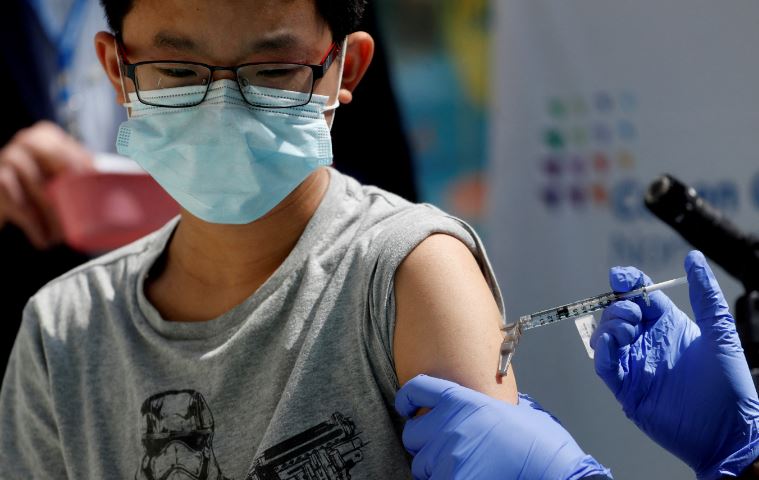The CDC has issued a recommendation that those 65 and older, as well as those with compromised immune systems, get another dosage of the reformulated booster that was introduced last autumn due to the continuing threat posed by the coronavirus.
After a day of deliberation, the C.D.C.’s advisory panel gave its stamp of approval. The Centres for Disease Control and Prevention (C.D.C.) recommendation was the penultimate administrative step before the Food and Drug Administration (FDA) approved the booster plan on Tuesday. Those Americans who qualify for booster shots may get them right now.
The original vaccine formulations developed by Pfizer-BioNTech and Moderna are likewise being phased out by federal health regulators, who are cancelling their approvals in the United States. The reformulated, or “bivalent,” Covid injection means that previously unvaccinated individuals just need one dosage to be deemed vaccinated, rather than the two doses they would have needed in the past.
Two doses of the older vaccination were previously needed by government regulators before users could begin receiving the bivalent boosters, a procedure that some experts found unclear.
Despite the quick decline in protection in the weeks after vaccination, the limited data on the reformulated vaccinations suggest that they provide extra protection against severe illness and mortality from Covid in older persons.
According to the Census Bureau, around 16% of the United States’ population consists of people aged 65 and over. In addition, due to sickness or medicine, seven million Americans have compromised immune systems.
About 250 Americans still pass away every day from Covid-related causes; most of those affected are either over the age of 70 or have compromised immune systems. According to the CDC, the typical hospital patient is 75 years old. Nevertheless, just approximately 43% of persons aged 65 and over have had a bivalent booster vaccine.
Most people in the United States are now immune to the virus because they were vaccinated or because they were exposed to it in the past. The revised standards recognise this reality while offering access to free protection for individuals who remain at high risk from the infection.
Dr. Faust recommended that those who are extremely immunocompromised, such organ transplant patients, consider getting booster doses every six months.
Like with flu shots, the F.D.A. intends to promote yearly Covid vaccinations in the autumn for the majority of Americans. The specific composition of the injection will be determined in June by health experts depending on the strain of the virus that is currently circulating.
The bivalent vaccination protects against not just the primary coronavirus strain but also the two dominant strains from last summer, BA.4 and BA.5. Newer versions swiftly replaced BA.4 and BA.5, however.
The most recent Omicron subvariant, XBB.1.5, is responsible for over 78% of instances in the US, whereas XBB.1.6 is responsible for roughly 7%. The updated immunisations seem to protect against hospitalisation and serious disease caused by these variations.
A single dosage of the bivalent vaccine, as opposed to many doses of the original monovalent vaccine, will be administered to those who have not previously been immunised. The F.D.A. said that this is because it is likely that most unvaccinated Americans already have some protection from a previous illness and hence may not need two doses initially.
The advise was severely criticised by certain specialists. According to John Moore, a virologist at Weill Cornell Medical College, the vaccinations are most effective when administered in a series of two doses separated by at least one booster shot.
University of Arizona immunologist Deepta Bhattacharya speculated that it could be safe to presume that almost all unvaccinated people had previously been infected at least once and can get by with a single dose of the vaccine.

